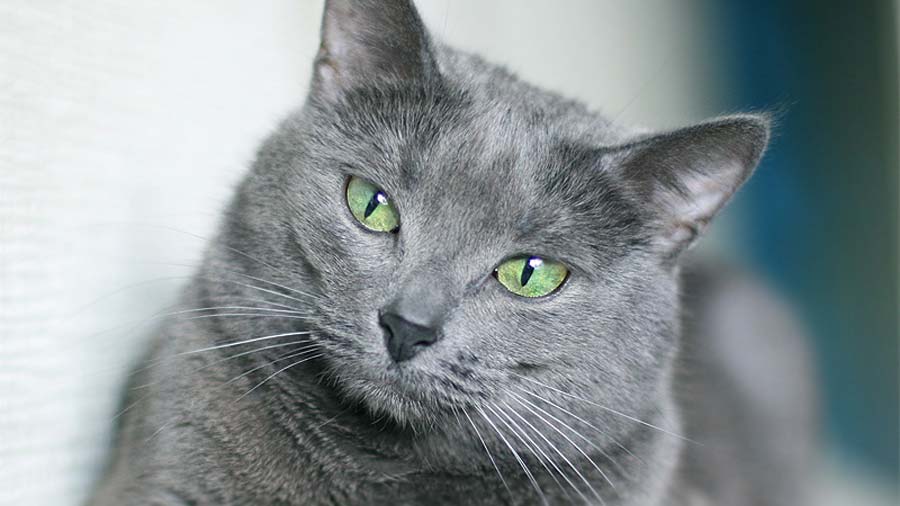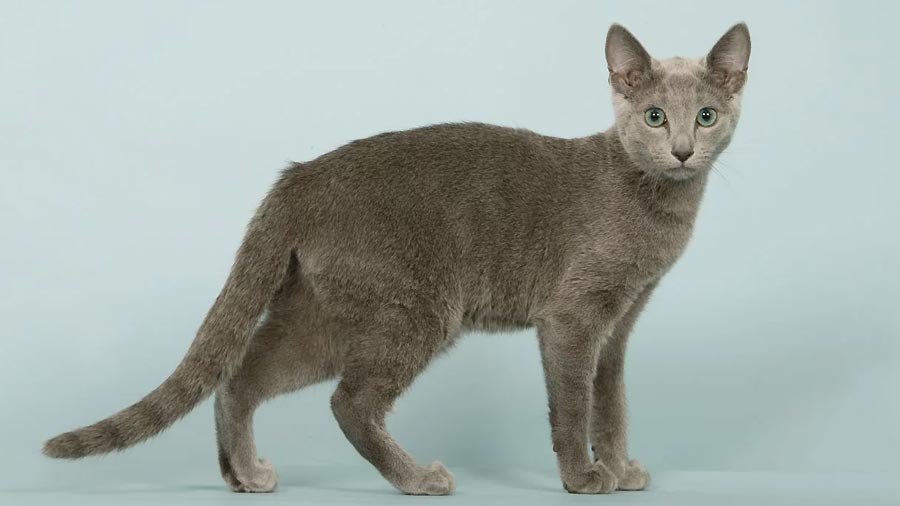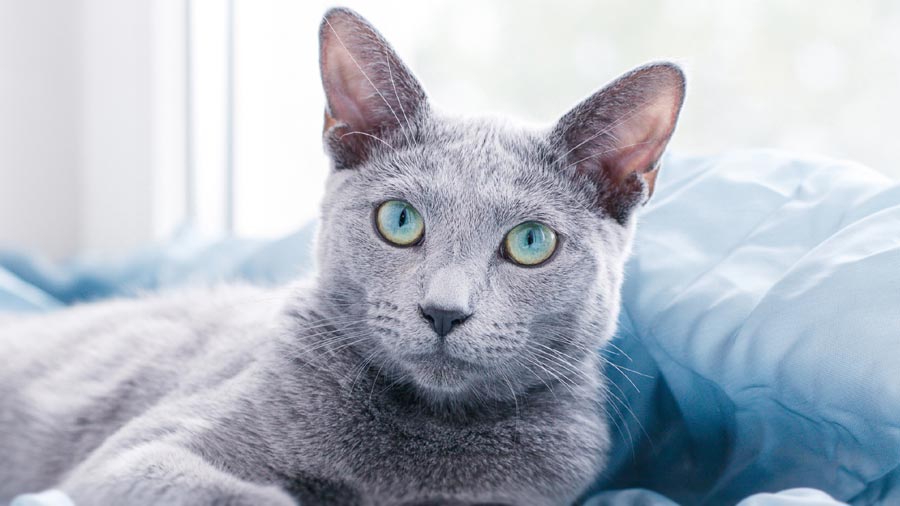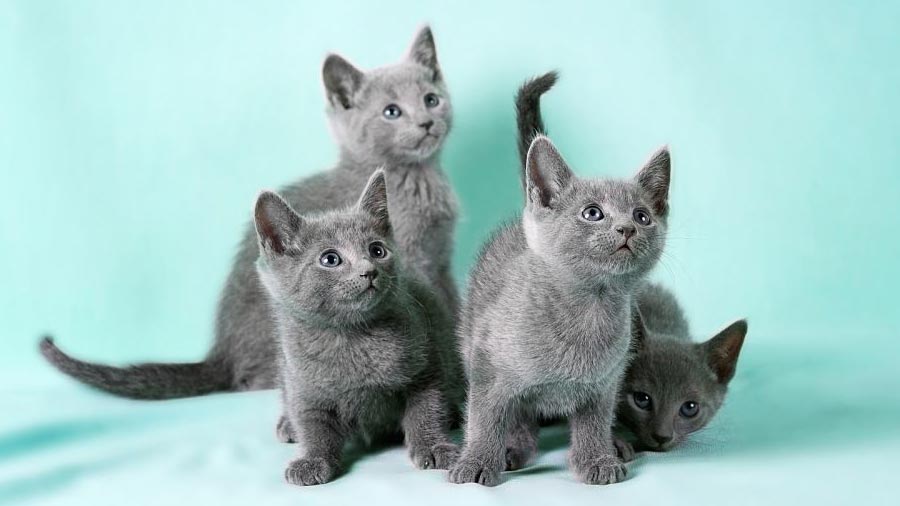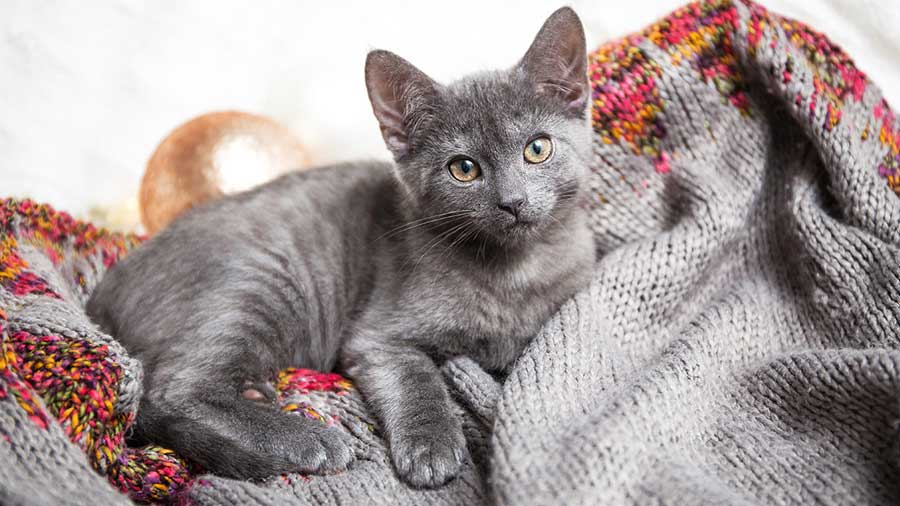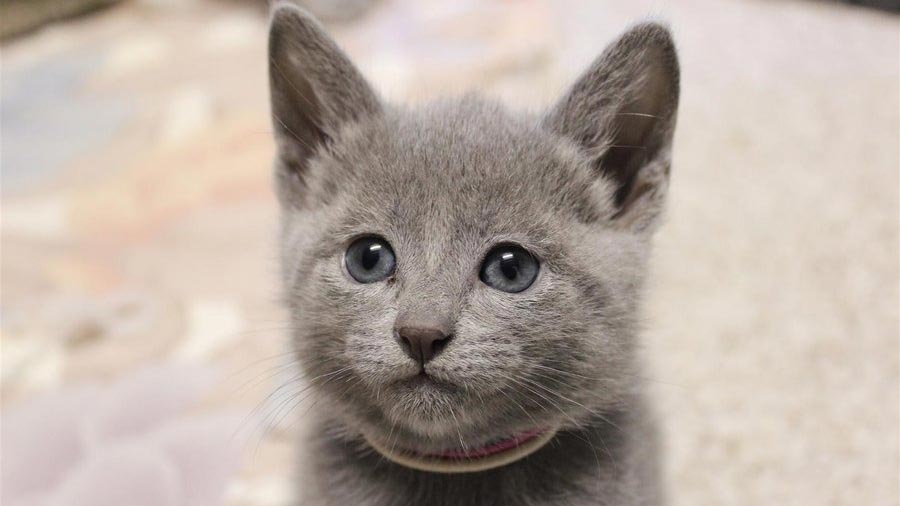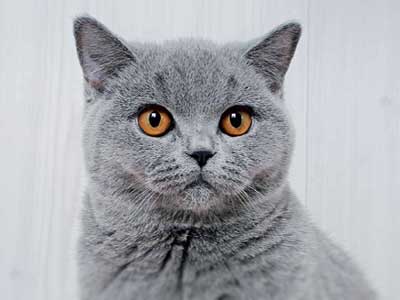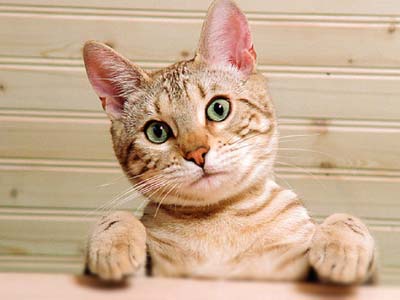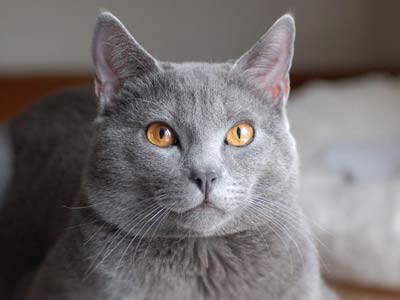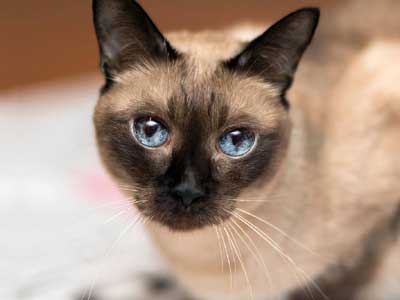Russian Blue
Breed Information |
|
|---|---|
| Popularity |
2018: #16 2017: #17 |
| Name | Russian Blue |
| Other names | Archangel Blue, Archangel Cat |
| Origin |  Russia Russia |
| Size | Medium |
| Coat |
Dense Undercoat Plush |
| Lap Cat | Yes |
| Life span | 10-16 years |
| Temperament |
Active Dependent Easy Going Gentle Intelligent Loyal Playful Quiet |
| Weight |
Male: 10 - 15 pounds Female: 7 - 12 pounds |
| Colors |
Blue Silver |
| Kitten Prices |
Average $1000 - $1700 USD How Much Does a Russian Blue Cost? Much of the Russian Blue cat price, which typically ranges between $800-$1,200. However, Excellent pedigree Russian Blue cats, from famous breeding farms, with beautiful eye colors and beautiful feathers, will cost $1,500- $3,000. |
Breed Characteristics |
|
|---|---|
| Adaptability |
3 stars |
| Affection Level |
3 stars |
| Child Friendly |
3 stars Good With Others: It is usually good with adults, older children (11+), and seniors and can be very affectionate towards them. |
| Dog Friendly |
3 stars |
| Energy Level |
3 stars |
| Grooming |
3 stars Moderate Maintenance: Regular grooming is advised to keep its coat in good shape. It stimulates circulation, massages the skin, and removes debris and loose hair. Frequency should be once a week. |
| Health Issues |
1 stars Hypoallergenic: YesGenerally Healthy: It doesn't have as many known illnesses and conditions as other cats. Best for owners who do not want to worry about long-term medical costs. |
| Intelligence |
3 stars |
| Shedding |
3 stars Moderate Shedding: Expect this cat to shed moderately. By providing it proper nutrition, regular grooming, and keeping the shedding contained to a small area, like a pet bed, will minimize shedding and make it more manageable. |
| Social Needs |
3 stars |
| Stranger Friendly |
3 stars |
| Vocalization |
1 stars Low Vocalization: It is known to be quiet. Therefore, owners shouldn't be concerned of excessive and undesirable crying or meowing, especially at night. |
Kitten Names |
||
|---|---|---|
| Rank | Male | Female |
| 01 | Toby | Ella |
| 02 | Oliver | Molly |
| 03 | Duncan | Sassy |
| 04 | Coco | Kitty |
| 05 | Olley | Belle |
| 06 | Lucky | Boo |
| 07 | Tommy | Sophie |
| 08 | Chunk | Gavin |
| 09 | Momo | Lexi |
| 10 | Fluffy | Tippy |
| 100 Cute Kitten Names › | ||
Overview |
|---|
|
The Russian Blue is quite an old feline breed that descends from cats native to the current, and former, country of Russia. This is a lean, medium-sized cat with a short, dense, plush double-coat that is described as being seal-like in texture. The color should be a solid bluish-gray, with a distinctly silvery sheen that comes from the dilute expression of the black gene. The silver-to-transparent hair tips on darker slate-blue hairs are what give the coat of the Russian Blue such a shimmering appearance, which is especially apparent when observed in natural light. There should be no trace of white or tabby markings on the ideal Russian Blue. Top-quality coat color and texture are the single most important characteristics of the Russian Blue in show competition. Russian Blues normally make quiet, gentle and affectionate companions. They are strikingly handsome and unique among domestic cats in their combination of color, coat and conformation. These are docile, sensitive, kind animals that are particularly in-tune with their owners’ emotions. They develop strong bonds with their loved ones and are extremely affectionate and loyal. The Russian Blue is also known for getting along quite well with other pets and with children that live in their immediate household. They are typically tidy and clean. Russian Blues can be shy around strangers, unless they are brought up in a very well-socialized living environment. They are not known to be aggressive or especially reclusive. They do not like to be left alone for prolonged periods of time and prefer the company of either a person or another companion pet at all times. The Russian Blue makes an exceptionally devoted companion. |
Children & Other Pets |
|
Russian Blues have a tolerant nature toward children who treat them kindly and respectfully. They will even put up with the clumsy pats given by toddlers, as if they recognize that no harm is meant, and if necessary they will walk away or climb out of reach to escape being bonked on the head. That said, the patient and gentle Russian Blue should always be protected from rough treatment, so always supervise very young children when they want to pet the cat. The Russian Blue is also accepting of other animals, including dogs, as long as they aren’t chased or menaced by them. Introduce pets slowly and in controlled circumstances to ensure that they learn to get along together. |
References
- [1] ^ YouTube: Russian Blue Cats: Are They Good Apartment Companions?
- [2] ^ YouTube: 7 FASCINATING Facts About The Russian Blue Cat Breed
